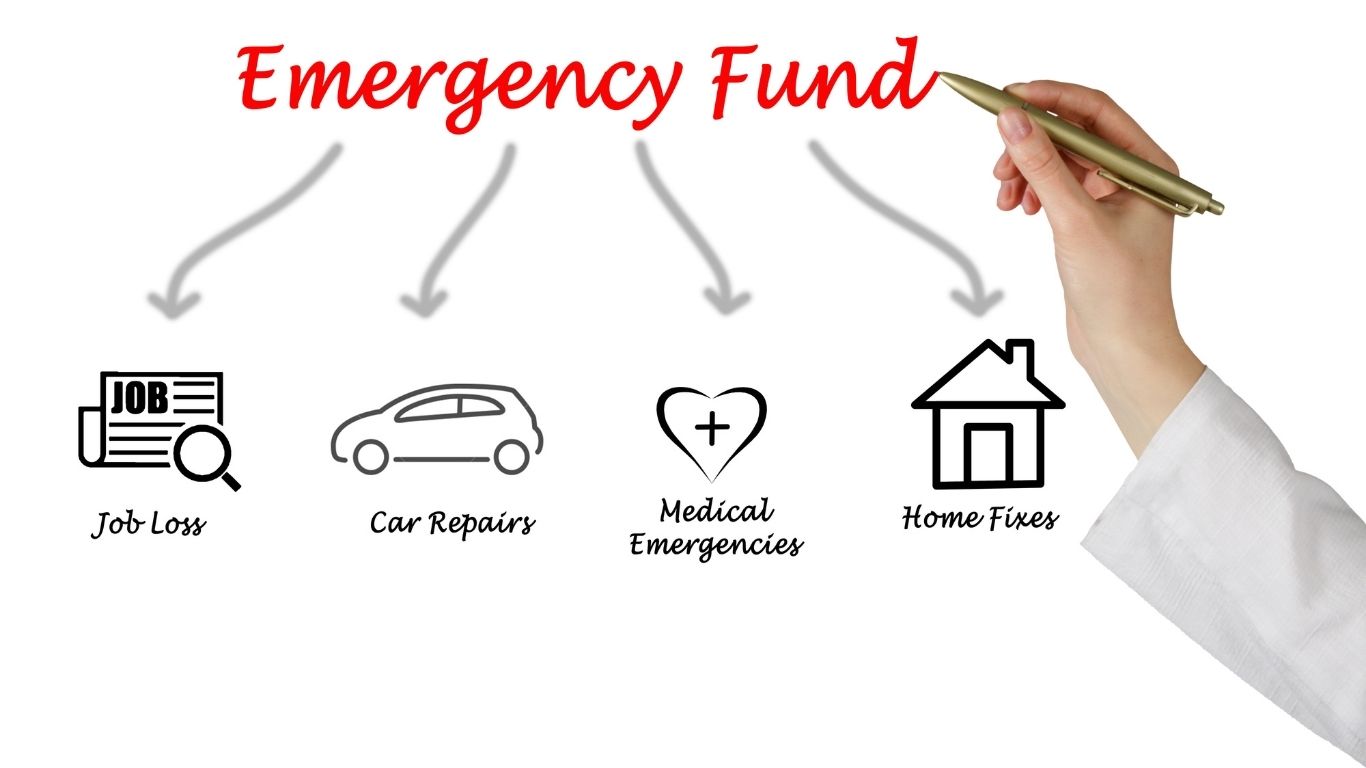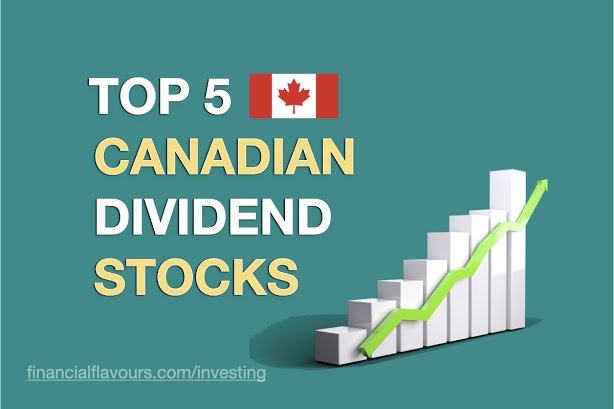If you are a beginner or learning How to Start Investing In Stocks then this guide will be a great source of information.
I’ve been investing in the stock market for more than 10 years and wanted to share this powerful all-in-one guide on “how to start investing in stocks for beginners” including the basics such as what is dividend stock?
Price is what you pay. Value is what you get. Risk comes from not knowing what you are doing
Rule No. 1: Never lose Money
Rule No. 2: Never forget rule No.1 –Warren Buffet
Why stock investing is popular?
The returns on safe investments are very low these days. For e.g Interest in a regular savings account, GICs are very low.
- Income from dividends. Owning companies (stocks) that pay out a portion of their earnings to shareholders in the form of dividends have a history of increasing their dividends annually. It’s a passive income, you get your dividends every month or quarter based on the stock.
Examples in Canada, these companies continue to pay a dividend to their shareholders: Fortis (44 yrs), Canadian National Railway (22 yrs), Enbridge (22 yrs) - Stay ahead of inflation: If you have a longer time horizon you can buy and hold quality companies even if the stock value temporarily drops.
- Many high-quality companies ( Apple, Microsoft, Disney) are publicly traded, allowing you to invest in your favourite companies
- Easy to Buy & Sell: You can place a market order from your computer in less than a minute and it usually will be executed within a minute.
- By understanding the few basic methods of evaluating stocks, anyone can start to make stock investments.
You can start with a small amount of money - Higher returns. High-Quality companies are considered worthwhile investments that qualify as a high return. If you invest them in TFSA (Canada) it will enable you to grow your investments on a tax-deferred basis. And when the time comes to begin making withdrawals, you can receive them on a tax-free basis
Stocks can be diversified. You can invest in a number of stocks in different sectors, countries, and industries which gives you various growth opportunities and diversifies your risk. If you have a diversified portfolio of high-quality companies, you don’t need to worry about short term market down situation. Stocks generally do well when the economy grows.
What are the Cons of investing in the stock market?
There are advantages and disadvantages to investing in stocks. Understanding the difference between the two is key to making the right choice for your portfolio.
Stock prices can fluctuate dramatically because of an overreaction to good or bad news. This volatility makes stocks riskier than other safe investments.
I don’t invest any money that I think I will need within 2 -3 years into the stock market. It is not a loss until you sell.
It’s impossible to time the stock market. Stock Market type of investments are complex system controlled by collective actions from external sources and it is not easy to predict with accuracy. Even the best analysts in the world can not decide if a stock will keep going up or down.
As a prudent long-term investor, it is important to stay the course and stick to your plan. Based on the proven track records of the greatest investors in history, like Warren Buffet, who says to “buy wonderful companies at fair prices” because no one can predict when a stock hit the bottom.
Returns are not guaranteed, stock investments are NOT CDIC-insured. Investors need to understand risk management and margins of safety.
Do Your Research: This is such an important part of investing. One of the key reasons for losing money in the stock market is that we do not conduct enough research on the company before investing.
If you pick the wrong stock, you risk losing the value of your investment. It is important to choose the highest quality and financially strong companies, then even if it goes down temporarily will come back up again.
Brokers and analysts tend to be overly optimistic about stocks or they may be biased towards a specific firm. They may not recommend selling stocks on time because they don’t want to offend anyone.
I made this mistake in the early days of my investing and the lesson that I learned was to do more due diligence on my own. It is ok to read the analyst’s review but you also need to do your own research about the fundamentals of the companies.
The risk may be specific to a company, an industry, or a country (can minimize with diversification and asset allocation).
A systematic risk that affects all companies, industries, and countries
It demands time to analyze a stock and gain knowledge: It is more effort to pick the right stock as compared to picking the right savings plan for your money.
How do you start investments in stocks?
I started with a very small stock investment a few years ago and gradually increased as I learned more. I am a long-term dividend growth investor because I have seen the power of dividend growth investing in my own portfolio over the years.
I continue to learn what works and what doesn’t when it comes to building long-term income streams. My goal is to share my investing experience both success and failures, while I am working on building my retirement portfolio.
If we can spend some time learning the basics of stock investing, then investing directly in the stocks offers a good option. However, stock investments are always subjected to risks of market fluctuations and returns are not guaranteed. There may be days the market is significantly down but if it is a quality company then it will come back up.
You should review your risk tolerance, cash flow statement, and other financial goals to determine how much you can afford to invest in stocks. Also, remember that past performance is no guarantee of future results so start small and then gradually improve your investing skills over time.
What are Dividend-Paying Stocks?

There are many companies that pay dividend yields that are much higher than what you can get on risk-free investments such as GICs, savings accounts etc. For e.g. BNS currently pays a dividend yield of over 4% (Please note that these are just examples and NOT a recommendation to invest in these companies.
Dividend-paying companies usually better known, established and been around longer than most other companies. However Dividend-paying stocks are not totally risk-free so you still need to follow the due diligence and do your own research.
Combination of dividend income and capital gains can provide better long-term investment results.
Qualified dividends are taxed at favourable rates based on your tax bracket.
Good dividend makes it easier for an investor to hold a stock through a declining market. The investor is receiving regular cash flow from the dividend while he is waiting for the market to recover.
What are some of the popular Canadian Dividend stocks
These are just examples and NOT a recommendation to invest in these companies.
- Royal Bank (RY)
- TD Bank (TD)
- Bank of Nova Scotia (BNS)
- Canadian Imperial Bank of Commerce (CM.TO)
- Canadian National Railroad (CNR)
- Enbridge Inc (ENB)
- Canadian Utilities (CU)
- Emera Corp (EMA)
- Fortis Inc (FTS)
- TC Energy Corp (TRP)
- BCE Inc (BCE)

What Sites can you use to check the stock price and finance news?
Here are the few that I am aware of:
- TD Waterhouse (My discount broker)
- TMX Money
- Yahoo Finance
- Investing.com
- Morningstar
- Globe Investor
- TradingView
- MarketWatch
- BNN
How much money do you need to start investing in stocks
It depends on many factors and need to be tailored for each investor. Before investing in stock know your Networth and make sure you have your emergency fund in place.
Some of the self-directed brokerage accounts can be open free with no minimum balance, but there will be small charge for per trade. You can use these self-directed brokerage account to invest in ETF, Low-cost index fund and individual stocks.
The amount of money that you need depends on the share price of the investment and number of shares you want to buy. You can begin with as little as $100 to $1,000 and add to it as you earn and save more money.
Some You may want to consult with a professional financial advisor and understand your risk tolerance.
Based on your risk tolerance if you are a conservative investor then stock investing may not be suited to you. ETFs might prove a good starting point for your level of risk tolerance.
When you improve your knowledge and a few successes, you could probably raise your risk tolerance to a suitable level. That is one of the reason to start with small investment and gradually add more.
What is stock (shares or equity)?
When you buy a stock you are buying a piece of ownership of a company. For e.g. if you buy a company stock (BCE, ENB, TD, Disney, Apple etc.) then you become a shareholder of that company. An individual Stock has the following characteristics:
- Name of the stock (E.g BCE Inc)
- Ticker symbol (Ticker) associated with the stock (E.g. BCE). The ticker symbol is the abbreviated term used to identify stock for trading purposes.
- Bid Price: The price at which a buyer would like to purchase stock (E.g $63.96)
- Ask Price: The price at which a seller would like to sell a stock ($64.07)
Daily high (Day high) and the daily low (Day low) at which the stock was traded - High (52 wk high) and low (52 wk low) price of the stock during the last year.
- The volume of trading (in 000s)
- The dividend yield (annual dividends as a percentage of the stock price), meaning the annual return you would receive from dividends if you purchased the stock today and if the dividend payments remain unchanged for the entire year. (E.g. 4.95%)
- Price-earnings (P/E) ratio, represents the stock price divided by the firm’s earnings per share.
closing price (Close), which is the price at which the final trade for the stock occurred on that particular day.
Net change (Net ch) in the price of the stock, which is measured as the change in the closing price from the previous day. - The net change in the price of the stock as a percentage (% ch)
How does Stock investing compare to other forms of investments?
Each type of investment has its own potential rewards and risks. Stocks offer an opportunity for higher long-term returns compared with other forms of investments but also come with greater risk.
- Select investments that suit your personal goals
- It is dangerous to invest in a risky investment when you know that you will be needing the fund in the near future and will have to sell the investment when the market is down.
Consider having a mix of different investment types so that you are diversifying your portfolio.
Investment Types | Investment Description |
Savings Account | Savings Account, GICs are very safe investments and CDIC insured but have provided lower returns compared to stock market. It is always good idea to have readily available cash for your emergency fund in case something happens |
Guaranteed investment certificates (GICs) | Provide interest income and Low level of risk but lower returns compared to stock market |
Term Deposits | Investors receive fixed interest (coupon) payments and price appreciation. |
Canada Savings Bonds (CSBs) | Bonds are usually more stable than stocks but have provided lower long-term returns. Bonds do well when the economy slows. Investors are more interested in protecting their money in a downturn. They are willing to accept lower returns for that reduction of risk. |
Exchange-traded funds (ETFs) | Exchange-traded funds (ETFs) are similar to mutual fund but the key difference is in the way they are managed. Most of the ETFs are passively managed, typically tracking market index. ETFs tend to have lower fees compared to mutual funds. ETFs can be traded like stocks, while mutual funds only can be purchased at the end of each trading day based on a calculated price. Some investors prefer ETFs because if a particular ETF's value drop during business day they can sell it off than waiting until the end of the day. |
Real estate investment trust(REITS) | Real estate investment trust is an income trust that pools funds from individual investors and uses that money to invest in real estate |
Growth Stock | Higher growth opportunities (capital gain, higher risk) |
Value Stock | A stock is undervalued by the market for reasons other than the performance of the businesses themselves. |
Income stocks | Investors receives periodic income from dividends |
Index Fund | Index Fund is type of mutual fund or ETF that track prominent indexes like the TSX, S&P 500 or the DOW Jones. The investment style for index fund is more passive compared to mutual fund which is actively managed. Costs are low because it is not actively managed. Low cost Index funds are good option for majority of investors (as per Legendary investor Warren Buffett) |
Mutual Funds | Mutual Funds are type of investments that combine stocks, bonds, and cash. This combination of investment gives you diversification. Mutual funds are mostly managed by professional so there is management/commission fee associated with it. Investors may earn interest income, dividends, price appreciation of the investments in the fund. It enables investors to invest in diversified portfolios with limited funds. |
What different ways can you invest in stock market?
- Individual Stocks
- Exchange-traded-Funds(ETFs) and Low-cost-Index Funds
- Mutual Funds
How does Asset Allocation/Diversification reduce risk?
Your risk tolerance is the key in determining which investments are best for you. If you are soon-to-be-retired or already retired falling stock market can cause serious damage to your retirement profile because you may need the money before the stock market recovers.
It is important to separate your long-term savings (stocks and bonds) from your short-term savings (GICs and Cash). Everyone should choose a risk-appropriate portfolio of stocks and bonds based on their retirement age.
No one should blindly follow someone else portfolio without considering their unique situation. Always start with proper asset allocation.

- Cash – You should have an emergency fund in a high-interest Savings Account
- GICs – Put short-term savings in GIC ladder
- Diversification often works because different investments types react differently to the same economic event. When the value of one investment type rises, the value of the other may falls. Regardless of what the economy does, some asset classes will benefit and it lowers overall risk.
- Use ETFs to target sectors/asset classes if you are not comfortable with individual stocks/bonds.
- Limit individual holdings to 1% to 6% of your portfolio
- Diversification will not necessarily prevent losses, but it can limit the losses
- A portfolio of stocks diversified across industries is less risky than a portfolio of stocks that are all from the same industry. Limit industry exposure to 5% to 10% of portfolio.
- Diversifying among stocks based in different countries makes you less vulnerable to economic conditions in any one country
The illustration below is an example of diversification only and it is NOT a recommendation.
Diversification Strategies : Aggressive, Very High Risk,
Government Bonds,10%
REITs,10%
Large Cap Canadian Stocks,20%
Small Cap Canadian Stocks,10%
Large Cap US Stocks,20%
Small Cap US Stocks,10%
International Stocks,20%
Emerging Market Stocks,10%
Diversification Strategies : Moderate Risk, Moderate Potential Return
GICs,5%
Government Bonds,35%
REITs,10%
Canadian Stocks,15%
Large Cap US Stocks,10%
Small Cap US Stocks,10%
International Stocks,15%
Diversification Strategies : Conservative, Lower Long Term Potential Return
What are the functions of Stock Exchanges?
Stock exchanges allow investors to purchase or sell existing stocks. Stock must be listed on a stock exchange before investors can trade, meaning that a firm must meet the minimum listing requirements of the exchange. The Toronto Stock Exchange (TSX) is where senior equities from Canada are traded. New York Stock Exchange (NYSE) is where senior equities from the United States are traded.
The major exchanges in Canada offer trading services electronically, and continually receive and process buy and sell orders from investors through different terminal vendors. You need to select a brokerage firm and sign up with them before you can place an order.
How do you select a Brokerage firm?
Most investors use online brokerage services such as TD Waterhouse, Questrade, etc to buy and sell stocks. You can choose a discount or full-service brokerage firm. A discount brokerage firm executes transactions but does not offer investment advice. A full-service brokerage firm offers investment advice and executes transactions. However full-service brokerage firms tend to charge higher fees for their services than discount brokers.
One advantage of placing orders through discount brokerage firm is that the commission charged per transaction is very low, such as $9 or $29. Online brokers provide real-time stock quotes and financial information.
How to place an order?
In order to set up an account with an online brokerage service, go to its website and follow the instructions. Many online brokerage firms have a money market fund where your cash is deposited until it is used to make transactions. you can earn some interest on your funds until you use them to buy stocks. Here is a typical interface for placing stock orders.
You must specify the following to place an order:
- Name/ticker symbol of the stock
- Buy or Sell
- Number of Shares
- Choosing an Order Type: Market Order or Limit Order
- Limit Order, which is an order placed with your broker to buy or sell at a pre-determined price and amount of shares. This method is considered to be the better option.
- I never use Market Order, always use Limit Order only which is an order to buy or sell a stock only if the price is within limits that you specify. A limit order sets a maximum price at which the stock can be purchased and can be for one day only or valid until cancelled
Trade-Offs between Return and Risks
Smaller companies may have more potential for faster growth but are very risky because many small companies fail before reaching their full potential. Investors can expect a higher return for taking on additional risk.
Stocks of large, well-known, well established and successful firms have minimal risk
What are the DO’s and DON’TS when investing in the stock market
Billionaire Warren Buffett is one of the most successful investors of all time. He has given several tips for successful investing through his interviews and books. I highly recommend watching his interviews and reading some of his books.
“Never invest in a business you cannot understand.” – Warren Buffett
- Never invest blindly in free recommendations that you receive, no matter how appealing they may sound. Recommendations made by brokers or analysts do not always lead to better performance. There may be a conflict of interest for e.g. they may own the stock and it is in their best interest to create a demand so that the price will rise.
- Do your research and look for good fundamentals ( e.g Payout Ratio, Free Cashflow, Dividend history, Revenues, Profits, Costs, Marketshare, etc.)
- Select companies from different categories, for e.g Bank, Telco, Utilities, Tech, Reit, Railroad, etc.
- “It’s far better to buy a wonderful company at a fair price than a fair company at a wonderful price.” – Warren Buffett
- Buy a stock the way you would buy a house. Understand and like it such that you’d be content to own it in the absence of any market
- Know your Networth
- If you closely monitor your network you can make better investing decisions in the future
- Start Small
- One of the best suggestions that I can provide is to start small investments in stocks. You may have thousands saved up in your savings accounts, but putting it all into stock or mutual funds can be very risky.
- If you don’t have time to research individual stocks it is better to invest in ETFs
What to do when the market Go Down
Since I started investing the stock market has gone down significantly many times. Stock Market Correction can cause a serious impact on your profile and can impact your retirement timing.
If you are soon-to-be-retired or already retired you should consider more fixed-income allocation that consists of high-interest savings accounts, GICs, and short-term government bonds. Based on your retirement goal you mix % of stocks vs. % fixed income. The money invested in the stock market should have a long-term time horizon greater than 2 – 5 years at the minimum.
I will admit that having some anxiety after the market corrections. Based on my experience I know the market does come back if your investments are in high-quality companies and in diversified investments. You can also view these types of corrections as tremendous buying opportunities and they can be used as part of a smart investment strategy. I do not sell anything when the market goes down. If the market gives you an opportunity to buy something you like for far less than before then it can provide a chance to increase our positions in existing holdings or initiate new positions in our stock watchlist.
When the market goes down if you are nervous then you may be taking on more risk than you are really comfortable with. You may want to consider rebalancing into the more conservative portfolio.
I hope that this quick article encourages you to learn about investing and start your own investment journey. Let the money work for you when you needed.
I’d love to hear your experience how you have started investing and your challenges, down in the comments section !!
Further Reading & Resources
Peter Lynch is one of the most successful investors and hedge fund managers in history, his investment style and philosophy have allowed him to earn billions of dollars. In the book “Beating the Street”, Peter Lynch formulates his experiences in how to decide when to buy or sell the stock with the right information.




0 Comments